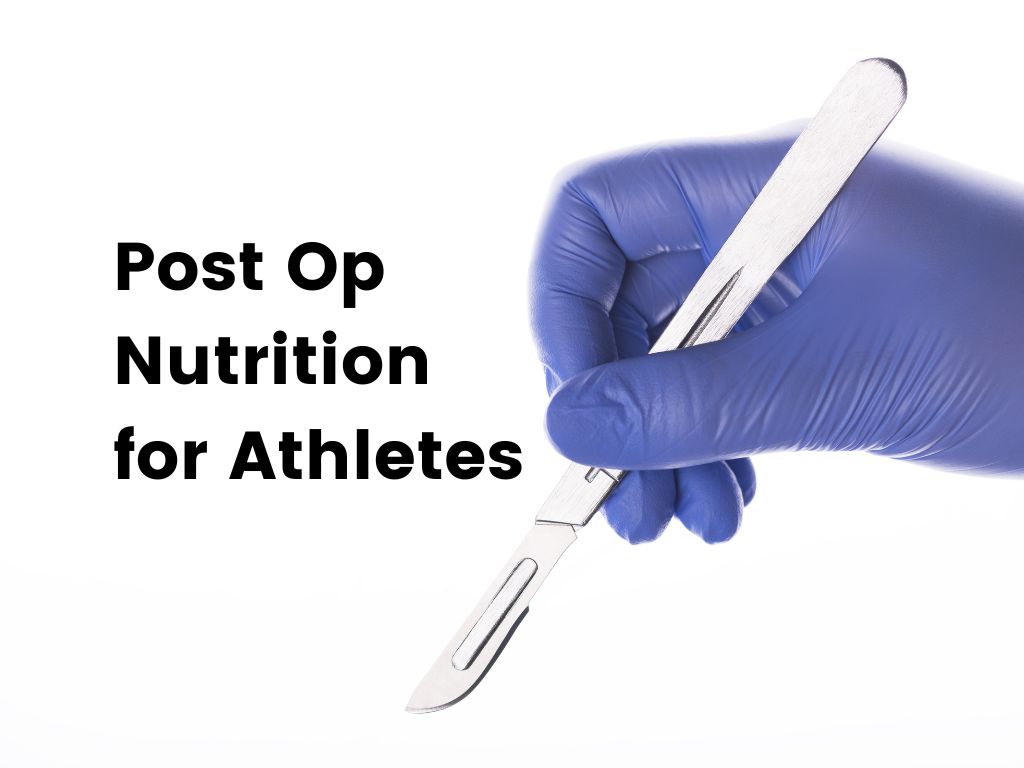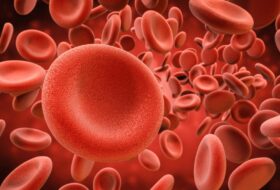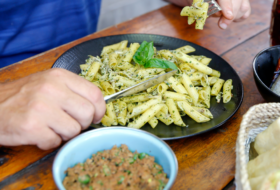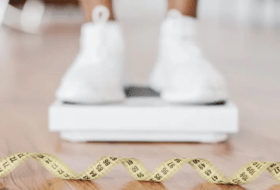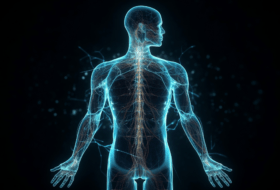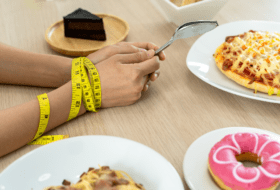After surgery, the body needs additional fuel and nutrients to heal and recover. Our team have supported hundreds of athletes come back after surgery. Let us share our key post surgery nutrition considerations and strategies to help you get back training and competing sooner.
Energy needs change following surgery
- To heal your body needs more energy (calories/kilojoules) than it would typically at rest BUT not as much as if you were undergoing full training.
- Keep up your regular meal/snacks but reduce your portions to account for your reduced energy needs.
- If using crutches though be aware that this requires 2-3 times more energy than walking.
Protein provides the building blocks for tissues to heal and rebuild
- Frequency is key – aim to eat a protein rich meal or snack every ~3 hours.
- Aim for ~ 0.3 g of protein per kilogram of body weight at every meal and snack – this is usually around 20-40 grams per meal for athletes.
- Choose foods rich in the amino acid leucine e.g. dairy, meat, fish, poultry..
- Including a protein rich supper before bed may be beneficial for those who typically struggle to maintain their weight e.g. smoothie, wholegrain cereal with milk or cottage cheese on grainy crackers.
Carbohydrate provides fuel for the recovery process
- Although carbohydrate needs are typically lower it is still important that you eat enough to fuel the healing process
- Choose quality carbohydrates e.g. wholegrains, fruit, starchy vegetables (kumara, potato, parsnip, corn) and legumes
Anti-inflammatory and antioxidant rich foods help with healing and managing inflammation
- Include Omega 3 fats (seafood and oily fish, chia seeds, flaxseeds, walnuts, fish oil supplements), colourful fruits and vegetables (especially berries, pineapple, tart cherry, leafy greens and tomatoes), curcumin (in turmeric), garlic and ginger
- Avoid proinflammatory foods e.g. heavily processed and refined foods, alcohol, sugary drinks, takeaways
Keeping well hydrated is important to maintain blood volume and delivery of oxygen and key nutrients to the injury site
- Hydration needs vary but aim for approx. 2-3 L a day
- A pale-yellow urine colour is a good indicator that you are well hydrated
- Water is best but nutritious fluids such as smoothies, milk, juice and breakfast drinks can help if you suffer from a low appetite after surgery
Key Nutrients
Below are some key micronutrients to support healing and their food sources. You should try to get these from foods first, as well as safe sunlight exposure for vitamin D. Over winter months or for certain athletes a vitamin D supplement may be beneficial or needed – discuss this with your nutritionist and/or doctor.
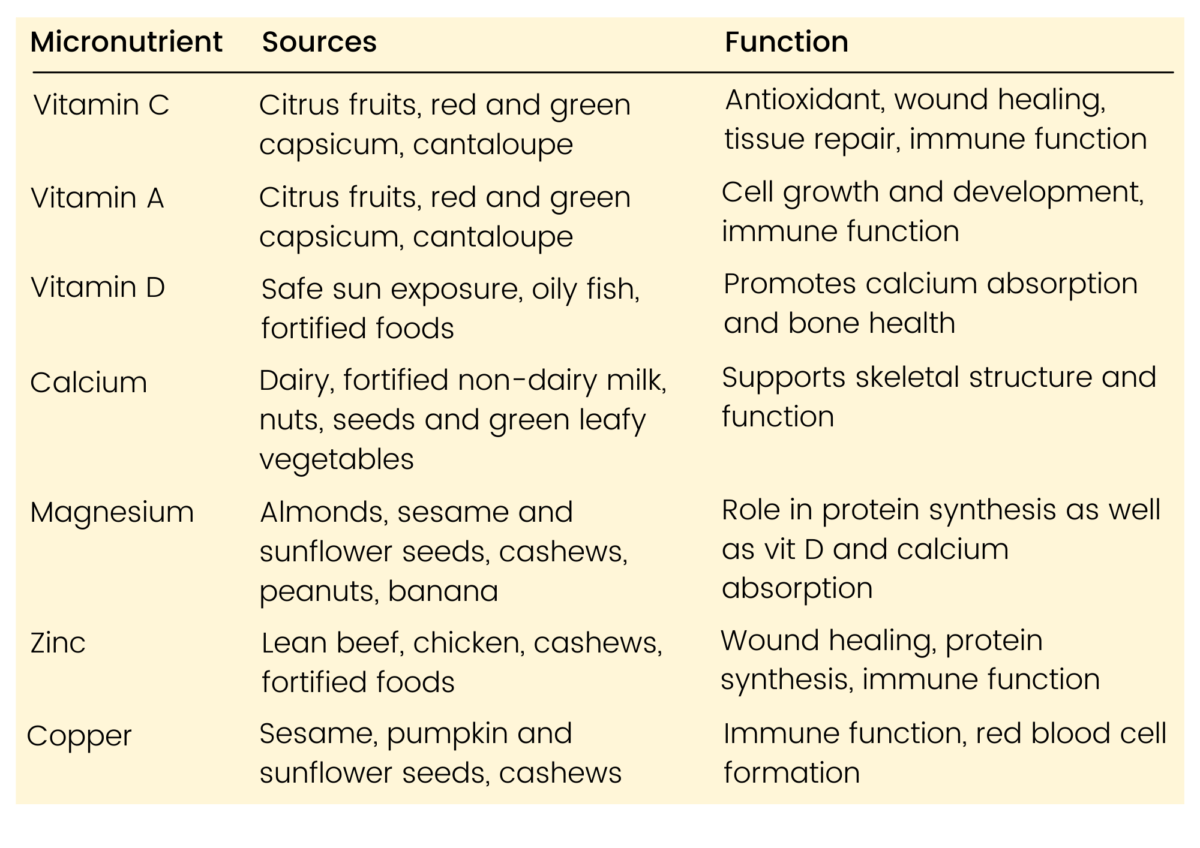
Supplements
There are a few supplements that have shown to help with managing inflammation or the repair of certain tissues. Remember though, as an athlete it is always important to use a batch tested supplement to reduce the risk of doping. To ensure you are getting the best bang for your buck it is worth discussing supplement protocols with an experienced dietitian or nutritionist.
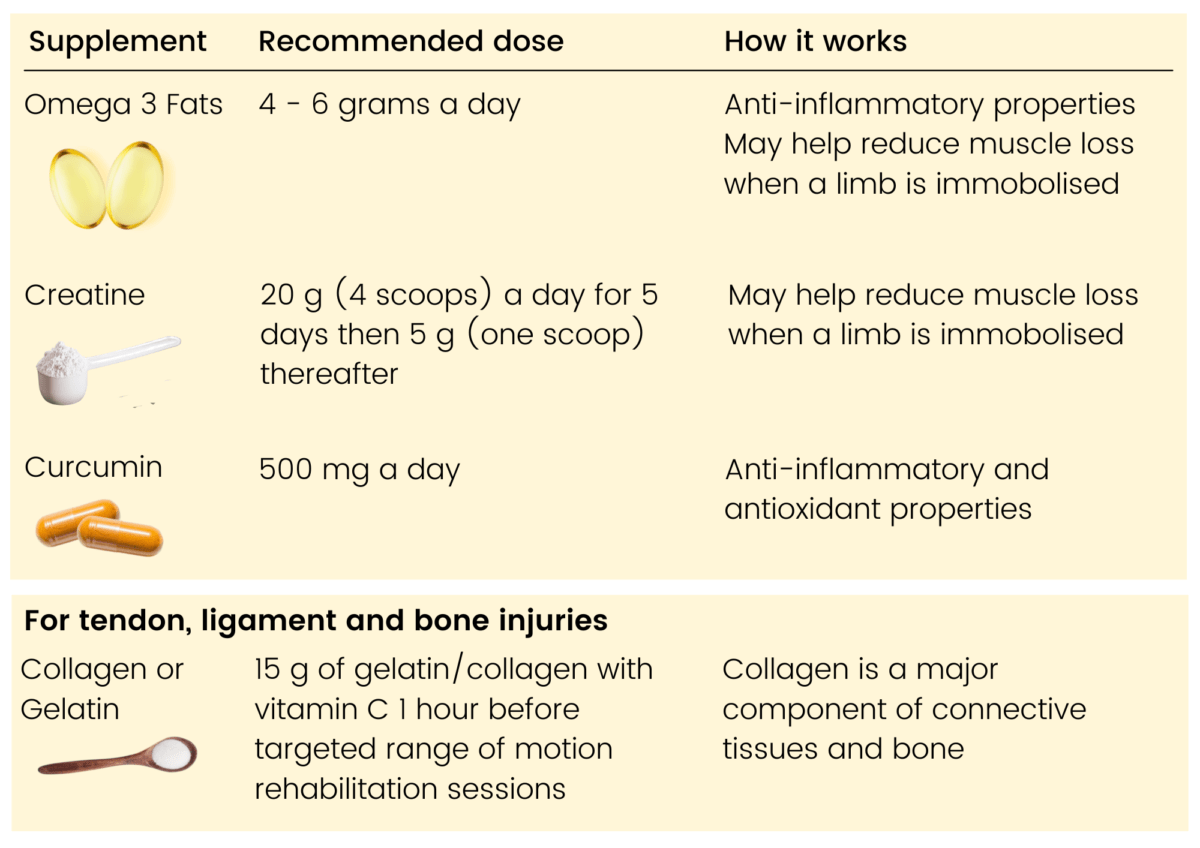
Managing Complications
Nausea, low appetite, vomiting and constipation are a common side effects of pain medications and general anesthetic. Below are nutrition strategies to help manage these complications.
Nausea and low appetite
- Eat small and regular meals and snacks – skipping meals can make nausea worse
- Eat bland foods and eat when your feeling well
- Ginger can help settle nausea
- Avoid drinking large volumes of fluids in one go especially with meals – instead sip on fluids over the day
- Use nutritious liquids e.g. smoothies if your appetite is poor
- Don’t lie down immediately after eating, ideally allow two hours
- If nausea is severe talk to the team doctor about anti-nausea medications
Vomiting
- Keep sipping on electrolyte rich fluids to prevent dehydration
- While sports drinks provide electrolytes oral rehydration solutions (ORS) are more appropriate for treating vomiting – discuss with the team doctor
- Gradually return to your normal diet – start with clear fluids then progress to other liquids and soft bland foods
Constipation
- Keep well hydrated
- Gradually increase fibre rich foods – fruit, vegetables, wholegrains, legumes
- Sorbitol rich foods such as apples, dates, prunes and pears also help draw water into the gut softening stools
- Physical activity if permitted is good for getting the bowels moving
- If constipation persists talk to the team Doctor about laxatives – some laxatives (bulk forming) are not recommended for constipation caused by pain medications
On crutches?
Shopping for and preparing food can be challenging after surgery with immobolised limbs and if you are relying on crutches to get around.
Don’t get caught out! Plan ahead by:
- Preparing some freezer meals or ordering Ready Made Meals – ask the team Nutritionist for recommendations
- Stock up on protein rich “couch” snacks such as nuts, yoghurts, cans of tuna and grainy crackers, nut bars, Up & Gos, jerky/biltong
- Using online supermarket shopping and delivery
- Have some healthy takeaway options handy e.g. Japanese, Pita Pit, Turkish
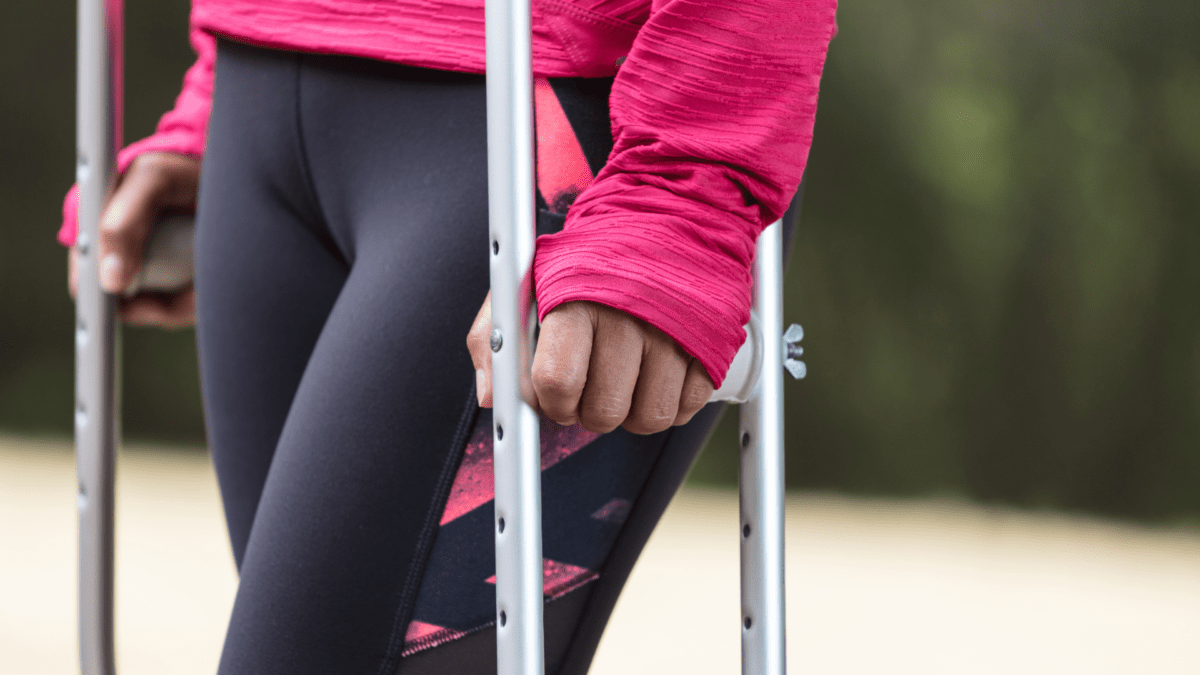
In a nutshell
How well you manage your post surgery nutrition will have a huge impact on how well and quicky you recover and ultimately get yourself back into training and competing. These simple strategies have seem hundreds of athletes return to their sport and perform at their best fallowing surgery. If you would like one on one support with your post op journey get in touch here. You can also download our post surgery nutrition factsheet below.

